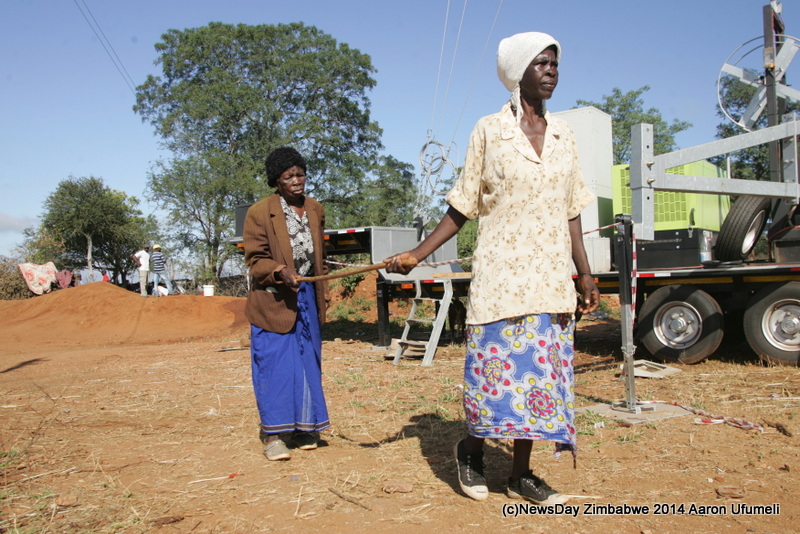
TEARS of joy streamed down her wrinkled sun-baked face as she extended her coarse hands to receive a small pack of chicken pieces bought for her for $1 by a well-wisher.
Tatenda Chitagu
It is understandable for someone who has hardly had a decent meal since February when she and thousands of other Tokwe-Mukorsi Dam flood survivors were packed into the overcrowded Chingwizi camp at Nuanetsi Ranch in Mwenezi that now resembles a refugee camp.
On lucky days she eats sadza and beans or the usual relish of matemba.
So when she gets chicken, it is like Christmas Day for her.
“Our problems continue to increase by the day. While they started off as a natural disaster, our current problems are man-made,” said a 70-year-old widowed granny, throwing her hands in the direction of the ruins of what was once a giant tent that housed all the food that was donated by well-wishers.
The widow is part of 18 000 villagers that are staring starvation in the face after soldiers acting on instructions from the government last week dismantled a large shed that served as storage space for donated food at the transit camp and moved it 17 kilometres away where government wants villagers to be resettled on one-hectare pieces of land without compensation.
“They said if we want food, then we have to move. We last had a 5kg of maize meal a fortnight ago,” she added. This scorched-earth method by government to force the people out of the camp follows massive resistance by families to go to the area where they are set to receive small plots instead of four hectares they were initially promised.
- Chamisa under fire over US$120K donation
- Mavhunga puts DeMbare into Chibuku quarterfinals
- Pension funds bet on Cabora Bassa oilfields
- Councils defy govt fire tender directive
Keep Reading
Another woman said their children were now succumbing to malnutrition and kwashiorkor due to food shortages.
“They last gave us the same quantity regardless of the number of family members. We need food here . . . our children are worst affected as they are showing signs of malnutrition. We are staring starvation if government does not change its stance. “We wonder how we will survive given that the general consensus is that no one is going. The few that went there were assaulted by fellow villagers for selling out,” added another woman.
On one of his many visits to Masvingo after the disaster broke out, Local Government minister Ignatius Chombo, who is the Cabinet chair on the Tokwe Mukosi Resettlement Committee, upon being briefed that the villagers were resisting to move, advised Provincial Affairs minister Kudakwashe Bhasikiti that they should only give the food handouts to a handful of villagers who had complied with the government directive.
But this threatens the lives of 18 000 hunger-stricken villagers that have been housed in the camp since February after floods flattened their homes. The villagers also claimed that even before the huge tent with food supplies was moved, they still faced food shortages of a less serious magnitude though as some of the aid was looted.
However, Bhasikiti brushed off the allegations as spiteful. “Those are malicious reports. We have done three audits so far and no anomaly has been detected.”











